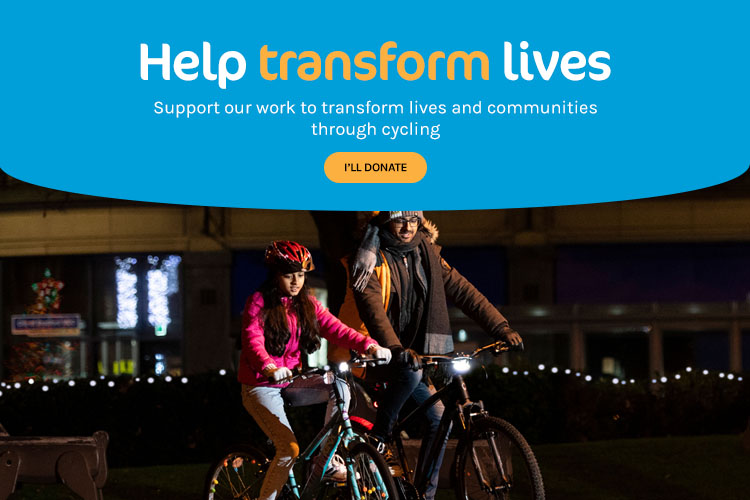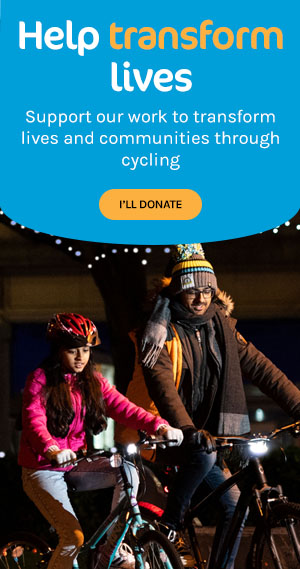
Common driving offences
Common driving offences
Headline Message
Penalising bad driving offences effectively would help create a safer and more attractive environment for cycling and walking. In particular, the drink/drive limit should be lowered in England and Wales, and hands-free mobile phones banned.
Note: 'Common Driving Offences' is one of a series of Cycling UK briefings covering various aspects of traffic law and enforcement. Others consider bad driving in the context of the legal framework in general and specific aspects of it including sentencing, prosecution, the courts, the vital role of the traffic police, and driver training, testing and licencing (forthcoming).
Policy Key Facts
- Speeding: From 2011-15 (GB), around a quarter of road deaths and 15% of KSIs (killed or seriously injured) occurred in collisions where the police believed that 'exceeding the speed limit' or 'travelling too fast for conditions' was a contributory factor. In 2015, 84% cars exceeded the speed limit on 20 mph roads (47% by 5 mph or more), while 52% of cars exceeded the speed limit on 30 mph roads, even though 89% of people believe that drivers should obey limits.
- Drink/Drug driving: In 2014 (GB), 14% of all road fatalities (240 people) happened in incidents where a driver was over the limit. In December 2014, Scotland cut its drink-drive limit to 50mg alcohol per 100ml blood, bringing it in line with most EU countries except for England, Wales and Malta where the limit is still 80mg/100ml. In 2015 (GB), the police thought that a driver/rider being ‘impaired by drugs (illicit or medicinal)’ was a contributory factor in incidents in which 67 people were killed, and 350 seriously injured.
- Mobiles/other distractions: In 2015 (GB), the police thought: that mobile phone use at the wheel contributed to collisions in which 22 people died and 99 were seriously injured; and that ‘distraction in vehicle’ contributed to collisions in which 66 people died and 504 were seriously injured. Drivers are four times more likely to crash when using a mobile phone. Over two thirds of the population feel that the law on using a mobile phone whilst driving is not properly enforced.
- Entitlement: The Motor Insurers’ Bureau settles around 25,000 claims a year made by innocent victims of uninsured/untraced drivers, including c.120 fatal cases. The risk of crash involvement for un-licenced drivers could range between 2.7 to 8.9 times greater than that for all drivers.
Cycling UK view
Exceeding the speed limit
- Speeding fines are currently too low to have any significant impact on driver behaviour.
- Extreme speed (e.g. 20 mph+ over the limit) should be treated as dangerous driving in the first instance.
- There should be no margin over the speed limit at which a driver avoids penalty.
- When determining the severity of any speeding offence and the penalties for it, the presence (or likely presence) of vulnerable road users should be considered as aggravating factors.
Drink/drug driving
- The drink-drive blood alcohol limit should be lowered in England, Wales and Northern Ireland from 80mg/100ml to not more than 50mg/100ml, in line with most European countries and Scotland. Novice drivers should not be allowed to drink at all before driving.
- We support the use of targeted checkpoints, but also believe that the police should be given more freedom to carry out random breath testing.
- Alcohol interlocks should be fitted in offenders’ vehicles. If successful, the measure should be extended.
- The definitions and standards for drug-related driving offences should relate solely to whether a drug impairs the ability to drive; it should not relate to whether it is legal to use it - i.e. over-the-counter and prescription drugs should be included.
Mobile phones and other in-car distractions
- Use of hands-free mobile phones whilst driving should be banned.
- More research needs to be done on the impact of other in-car distractions (e.g. SatNavs, radios, in-car computers etc.). Drivers who put others in danger because they have been distracted by such devices need to be appropriately penalised.
Driving without entitlement
- Any driver convicted of a bad driving offence whilst unlicensed or disqualified, and those who persistently break driving bans or go on driving despite not being entitled to do so for some reason, should receive a custodial sentence for the crime.
2017-02-28 00:00:00 Europe/London








